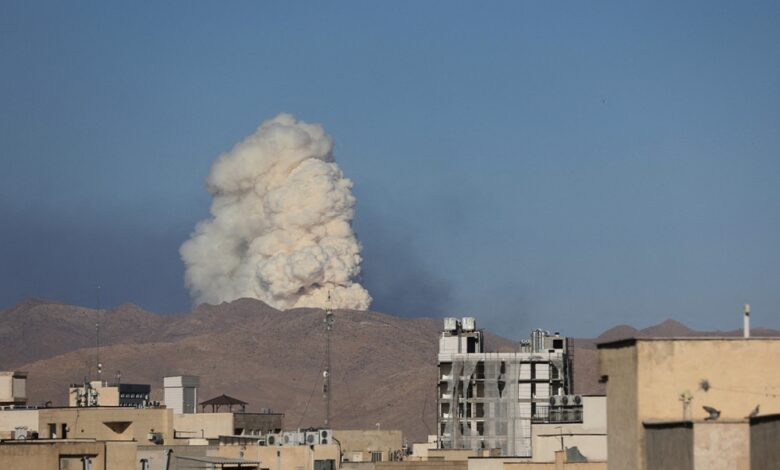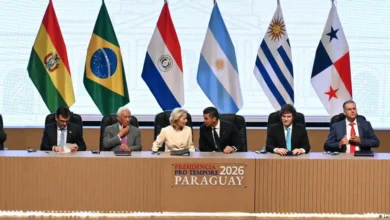
The confrontation between Iran and the Israeli occupation entered its eighth day on Friday, intensifying with missile attacks, cyber warfare, and diplomatic gridlock. The latest escalation has drawn in international players, with growing concerns over regional and global security.
Iran launched a fresh round of missile attacks on Israeli-occupied territories, with one notable strike hitting a technology company building in the city of Beersheba.
At the same time, Iranian state media announced the arrest of a suspected “Mossad agent,” alleging the individual transmitted sensitive information about Iran’s air defense systems to Israel via WhatsApp.
Israeli Defense Minister Yisrael Katz declared that the ongoing Israeli offensive was explicitly aimed at “destabilizing the Iranian regime.”
He confirmed that the Israeli military had been ordered to escalate its attacks on regime-linked targets in Tehran. According to Israeli media, initial reports suggest that a nuclear scientist was killed in an Israeli airstrike on the Iranian capital.
In the midst of all this, Al-Jarida daily reported that, Russia has expressed concern over the evolving situation, calling the Middle East conflict “dangerous” for its interests.
The Kremlin noted that while communication channels with Israel and the United States remain open, the situation is tense.
President Vladimir Putin has reportedly offered to mediate, although it remains unclear whether the offer will be accepted.
Meanwhile, Israel has provided guarantees to Russia regarding the safety of Russian personnel working at the Bushehr nuclear power plant in Iran.
Iranian Foreign Minister Abbas Araqchi ruled out any negotiations with the United States or other parties while Israeli attacks continue.
“There is no room for talks as long as Israeli aggression persists,” Araqchi said on state television, accusing the U.S. of being complicit in Israeli “crimes” and reiterating that Iran avoids civilian targets—unlike Israel, which he accused of deliberately bombing hospitals in Gaza.
The Israeli military claimed to have targeted what it described as a “research and development center for Iran’s nuclear weapons program” in Tehran, marking a significant escalation in the conflict. The exact extent of the damage has not been officially disclosed, with Israeli authorities maintaining a blackout on images of damaged sites, despite their circulation on social media.
Meanwhile, Iranian operatives reportedly hacked into Israeli private surveillance camera networks to track missile strike accuracy and gather intelligence.
Rafael Franco, former deputy director of Israel’s National Cybersecurity Directorate, warned the public to secure their systems. “The Iranians are actively attempting to access camera networks to assess missile impacts and improve targeting,” he said.
Cyberattacks have surged on both sides. Pro-Israel hacking group Predator Sparrow claimed responsibility for disrupting a major Iranian bank and breaching a cryptocurrency exchange. Iran’s state media countered by alleging that Israel had launched a large-scale cyberattack on Iranian critical infrastructure.
As military and cyber clashes continue, diplomatic efforts are still being pursued. British Foreign Secretary David Lammy stated that there may be a narrow window — “within a week” — for diplomacy to prevail.
He is expected to meet with his Iranian, French, and German counterparts in Geneva for urgent talks aimed at de-escalating the conflict.
The volatile situation underscores the urgency for diplomatic engagement, even as both military and cyber fronts continue to evolve, with the potential for broader regional consequences.




























